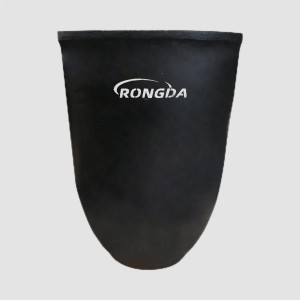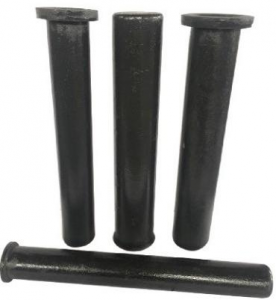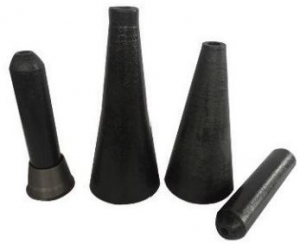Crucible for melting aluminum
Features

Crucible for melting aluminum
Silicon carbide graphite crucible
Silicon carbide graphite crucible is made of high-purity silicon carbide and graphite and has the following characteristics:
- High thermal conductivity: Silicon carbide graphite crucible has excellent thermal conductivity, which can achieve rapid heat transfer, improve melting efficiency, and save energy.
- High temperature resistance: These crucibles can withstand extremely high temperatures, often exceeding 1600 degrees Celsius, making them ideal for high temperature melting processes of aluminum and its alloys.
- Thermal shock resistance: Silicon carbide graphite crucible has excellent thermal shock resistance, making it less likely to break or deform due to rapid changes in temperature.
- Corrosion Resistance: These crucibles have good resistance to acids, alkalis and other chemicals, extending their service life.
- Long service life: Due to the superior properties of the material, the silicon carbide graphite crucible has a longer service life, reducing the frequency of replacement and saving costs.
- Application: Silicon carbide graphite crucible is widely used in industrial-scale production that requires high temperature and rapid melting of aluminum and aluminum alloys, and is especially suitable for large-scale industrial production.
Clay graphite crucible
Clay graphite crucible is made of natural clay and graphite and has the following characteristics:
- High temperature resistance: Clay graphite crucible can also withstand high temperatures and is usually suitable for melting processes between 1200 and 1400 degrees Celsius.
- Good Thermal Stability: These crucibles have good stability at high temperatures with minimal deformation or cracking.
- Good oxidation resistance: Due to the oxidation resistance of graphite, clay graphite crucible is not easily oxidized at high temperatures, extending its service life.
- Affordable price: Compared with silicon carbide graphite crucible, clay graphite crucible has lower production cost and is economical.
- Easy to manufacture: The manufacturing process of clay graphite crucible is relatively simple, the production cycle is short, and it can quickly meet market demand.
- Application: Clay graphite crucible is widely used in the smelting process of small and medium-sized aluminum and aluminum alloys, and is especially suitable for daily use in laboratories, educational institutions, and small and medium-sized enterprises.
Comparison between silicon carbide graphite crucible and clay graphite crucible
| Features | Silicon Carbide Graphite | Crucible Clay Graphite Crucible |
| Thermal conductivity | Thermal conductivity is excellent | heat transfer is rapid and good, but not as good as silicon carbide graphite crucible |
| High temperature resistance | can withstand temperatures above 1600°C | suitable for melting processes of 1800°C |
| Corrosion resistance | Excellent thermal shock resistance | not easy to break or deform, but not as good as silicon carbide graphite crucible |
| Good corrosion resistance | resistance to acids, alkalis and other chemicals | good oxidation resistance, resistance to chemical corrosion |
| Service life | Long service life and reduced replacement frequency | Short service life but lower cost |
| Price | The price is relatively high | more economical |
| Manufacturing process | The manufacturing process is complex and the production cycle is long | The manufacturing process is simple and the production cycle is short. |
| Applications | Routine melting processes in industrial-scale production laboratories | SMEs and educational institutions requiring high temperatures and fast melting processes
|
In summary, the appropriate crucible must be selected based on specific requirements. If high thermal conductivity, high temperature resistance, and long service life are required, silicon carbide graphite crucibles are the ideal choice. If cost-effectiveness and shorter manufacturing cycle times are a priority, clay graphite crucibles are the first choice. No matter which type of crucible is chosen, it can provide reliable support for aluminum smelting and improve production efficiency and quality.









